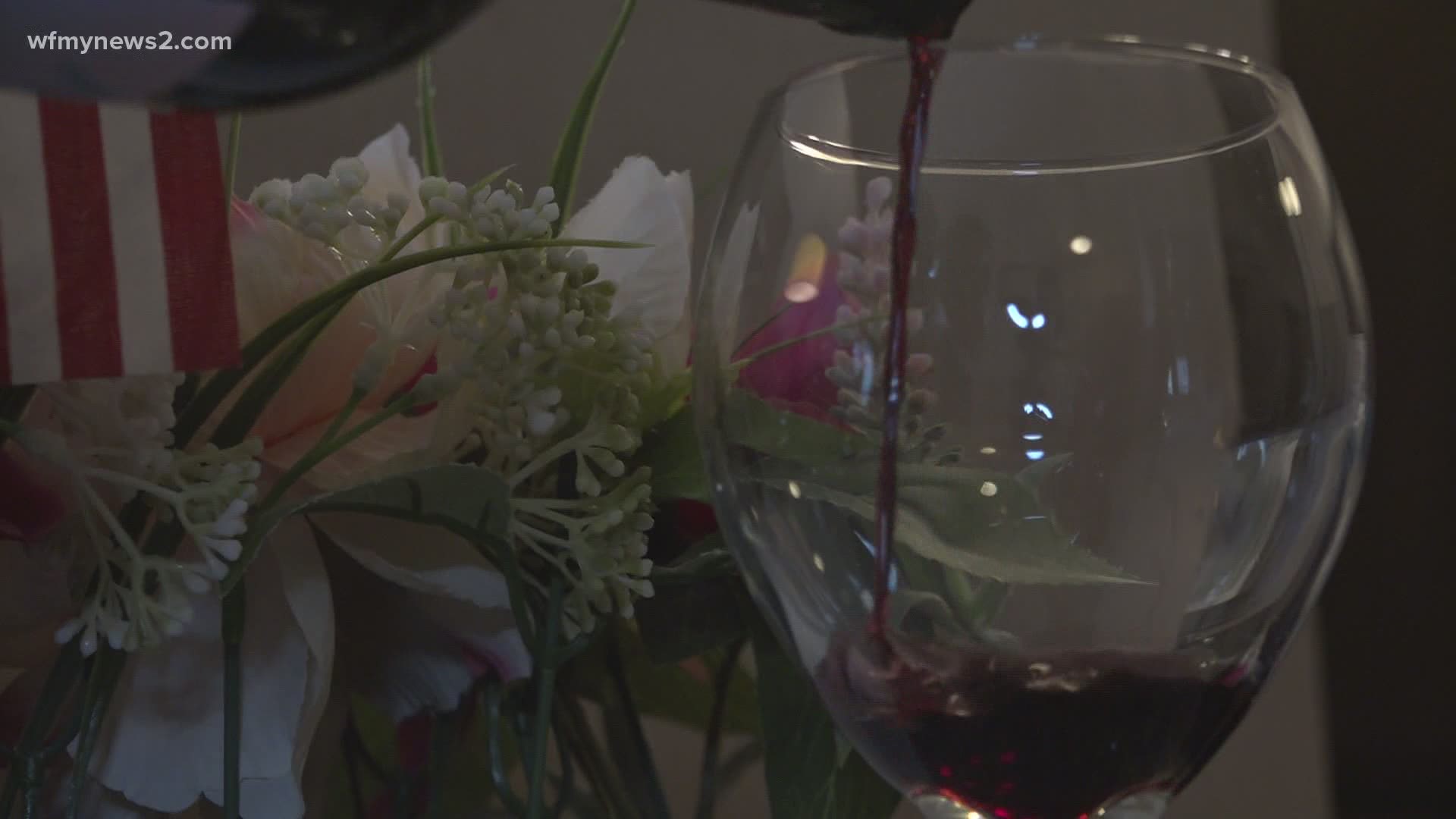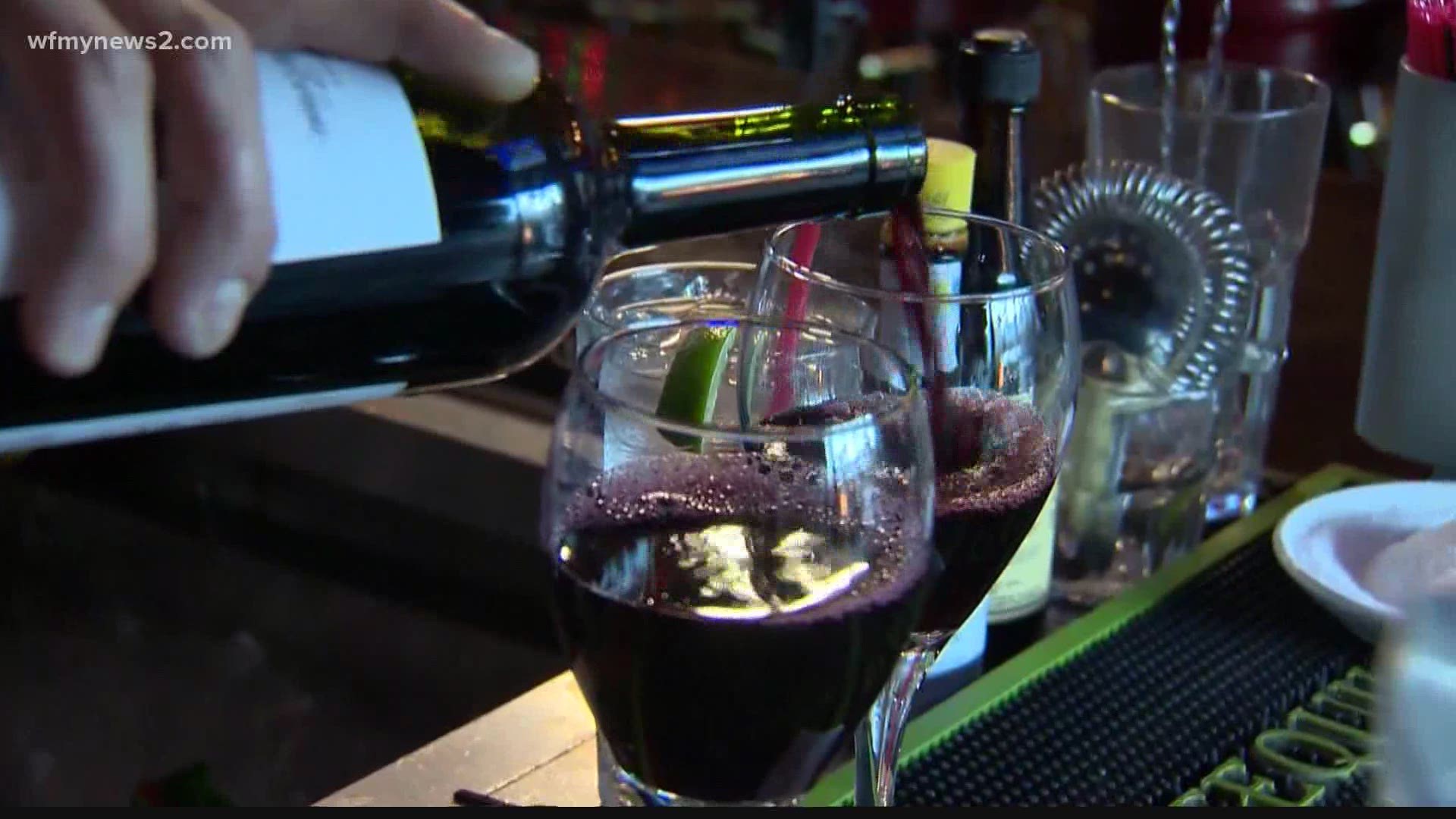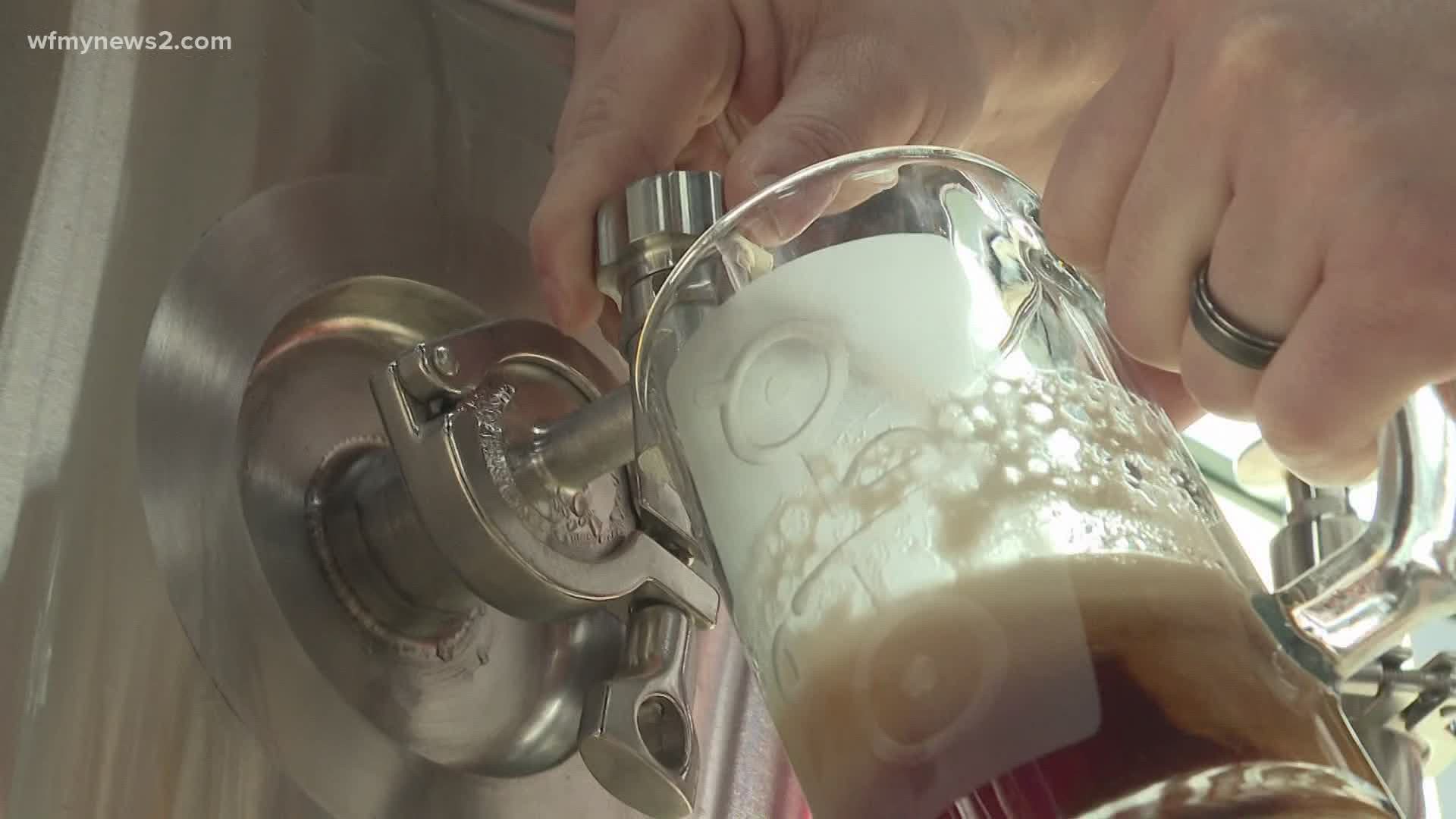GREENSBORO, N.C. — Some struggling Triad business owners said they can't seem to catch a break after North Carolina Governor Roy Cooper banned the sale of alcohol past 11 pm.
Cooper announced Tuesday that he’s curbing alcohol sale hours at restaurants late this week as a way to discourage the spread of COVID-19 during late-night gatherings.
Starting Friday, the eateries and other establishments offering drinks by the glass-like distilleries and breweries will have to cut off sales at 11 p.m. State law usually allows sales until 2 a.m. The curfew doesn’t apply to grocery stores that sell beer and wine.
Standalone bars in the state have remained shuttered since March. Cooper said he’s been worried about the increasing number of positive cases of the coronavirus among young people. He pointed out reports of patrons flocking to restaurants for alcohol, in the absence of bars, and hanging out without social distancing. Some local governments had already issued sales restrictions prior to the governor's order.
“We know that the ‘bar scene’ has been a place where we have seen increased transmission,” Cooper said. “We want to drive those numbers down.”
Triad restaurant owners want to drive their bottom line up and said the restrictions continue to pose a challenge.
"I was kind of expecting this to sort of, be a little bit earlier in this whole process, being that it's kind of late in the game so to speak it was kind of a shock," Alex Hollowell said.
Hollowell owns Spruce Street Garden and Craft Tavern in Winston-Salem. He said he has gone through extensive and creative measures to ensure he could run his business under phase two guidelines.
"Now that we are restricted back, we might have to go back to the drawing board and figure out something else which is kind of rough right now with everything that we're dealing with already," he said.
Meanwhile, liquor sales in North Carolina have seen a 12% increase during the fiscal year that ended on June 30. The jump largely came in March when Cooper shut down bars and restaurants due to the coronavirus pandemic. It's a welcome development for the alcohol industry but not so much for bars and restaurants where liquor purchases remain below normal levels.
"If you're a bar owner, I mean, my God, this is a disaster. I mean you haven't been able to operate for the entire summer," food industry advocate, Algenon Cash said. Cash runs the Triad Food and Beverage Coalition which is made up of various food and beverage industry entrepreneurs.
Cash said while they understand the reasoning behind the curfew and various related policies, business owners are not given adequate time to prepare for the impact.
"When it's done so abruptly, it's very difficult to pivot and make plans to be able to make these kinds of transitions," Cash said. He fears the restrictions and the inability for restaurants to maximize alcohol sale revenue opportunities would lead more businesses to close.
"Somewhere around 30% of the restaurants that were here before COVID-19 won't be hereafter. You have restaurants that were eking out a profit under these restrictions and obviously the enhanced restrictions that the governor just passed certainly makes it even harder for us to navigate this unprecedented time," Cash said.
Cooper’s announcement came on the same day North Carolina reported another record number of current hospitalizations involving coronavirus patients at almost 1,250. State Health and Human Services Secretary Mandy Cohen said Tuesday some case trends appear to be stabilizing.
More than 116,000 people in North Carolina have tested positive for the virus since the pandemic began, with more than 1,800 deaths, Cohen’s department said.
Restaurants can still stay open past 11 but bars remain closed until the governor states otherwise. The alcohol sales curfew doesn’t apply to grocery or convenience stores.



